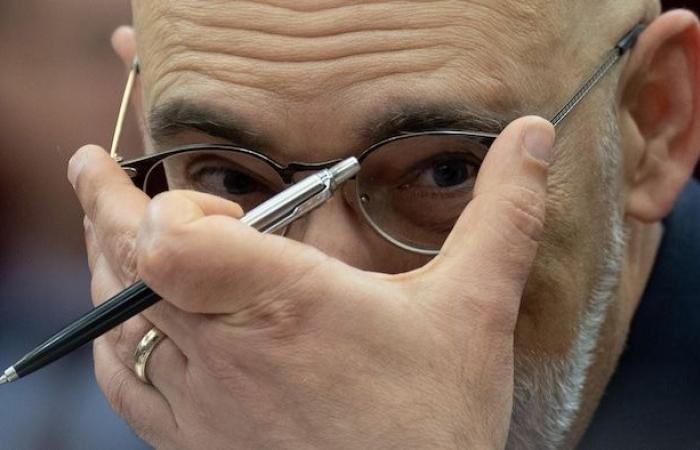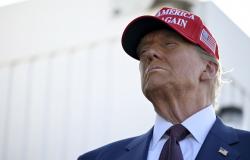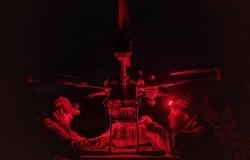The dead end in the Commons jeopardizes the payment of amounts blocked in Ottawa’s coffers. This money is, however, vital to paying for military and humanitarian support to Ukraine, to deploying health services to Indigenous people or to reimbursing the reception of asylum seekers in Quebec.
Parliament must approve all expenditure and that is what is paralyzed. The government is asking Parliament to authorize it to spend $21.6 billion
says Yves Giroux, the Parliamentary Budget Officer (DPB), from the outset.
In an interview on the show Behind the scenes of powerr, Mr. Giroux warns that ministries will have to slow down their spending and demonstrate budgetary rigor to compensate for the lack of funds. This unusual situation is a direct consequence of the paralysis which has plagued the work of Parliament since October.
This may have negative consequences for certain ministries and agencies, […] notably for the Ministry of Indigenous Services, which is responsible for Indigenous health care. There could be a bit of belt-tightening if the paralysis is not resolved in the coming weeks.
The official points out that the government cannot spend money “itself”; he has need permission
of Parliament. THE DPB detailed the blocked expenses in a report (New window) published this week.
According to the functioning of Canadian parliamentarism, this approval must be the subject of a vote by elected officials. And time is running out, because they will have to proceed by December 10.
Mr. Giroux specifies that these amounts represent a small part of the federal budget, which is $500 billion in total.
Open in full screen mode
The parliamentary budget director, Yves Giroux, is categorical: no path of passage exists without a vote in the Commons. (Archive photo)
Photo: The Canadian Press / Adrian Wyld
The departments will have to do risk management; slow down certain expenses. In some cases, small ministries, small agencies […] may have to put a complete stop to certain spending.
There is the possibility of scraping the bottom line or seeking flexibility elsewhere in the government apparatus for certain expenditures, but probably not for all of the funds.
warns Mr. Giroux.
According to the DPBthe Treasury Board could use reserves
to cover the expenses of certain ministries, but the parliamentary director is categorical: no path of passage exists without a vote in the Commons.
A blocked Parliament
I’ve been in the region and in the federal public sector for around thirty years now and I don’t remember seeing a similar situation.
says the official.
Parliamentary work has been paralyzed since October due to a standoff between the government and the opposition. The government has few options to stop it.
This money is, however, vital to paying for military and humanitarian support to Ukraine, to deploying health services to Indigenous people or to reimbursing the reception of asylum seekers in Quebec.
The Liberal government must obtain the support of the oppositions during a vote on an adjournment motion. This possibility remains uncertain.
This week, Speaker of the House of Commons Greg Fergus encouraged the parties to agree to move forward by December 10.
Payment for asylum seekers also on hold
Funds intended for Quebec to receive asylum seekers are also in turmoil. Of the 750 million promised to the Quebec government, Ottawa had paid 169 million dollars. The remaining $581 million is frozen.
The Minister of Immigration of Quebec, Jean-François Roberge, is worried about this, while this issue has been the subject of friction between the two levels of government for several months.
The vote to confirm this payment must take place as quickly as possible. Welcoming too many asylum seekers represents colossal costs for Quebec
declared Minister Roberge by email.
Some examples of blocked expenses
- $581 million to support Quebec asylum seekers
- $1.2 million in military and financial aid to Ukraine
- $942.5 million for support programs for veterans and their families
- $955 million in support for First Nations children and families
- $2.9 billion in personnel expenses
- $1.8 billion in military procurement and spending






